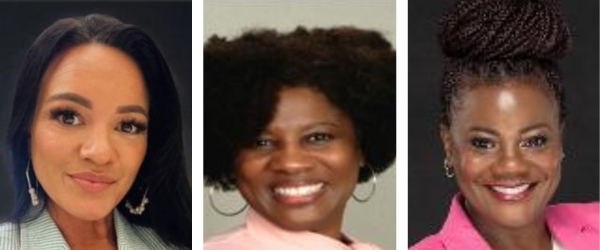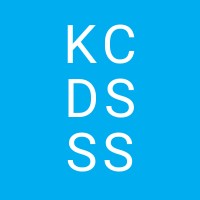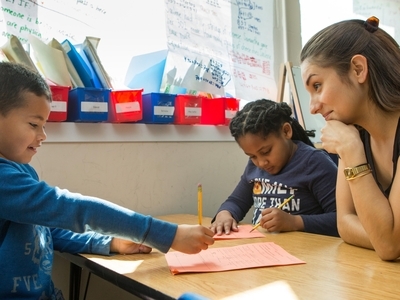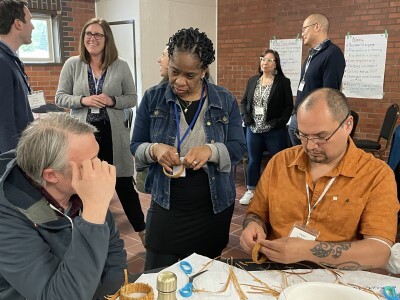Bridging People and Policy in K-12 Education
Topics

Next generation learning is all about everyone in the system—from students through teachers to policymakers—taking charge of their own learning, development, and work. That doesn’t happen by forcing change through mandates and compliance. It happens by creating the environment and the equity of opportunity for everyone in the system to do their best possible work.
Policies should be designed to remove barriers, not create them, so that every student has a genuine chance to succeed.
In education, policy is often seen as something distant: a set of rules written in legislative documents, far removed from the daily experiences of students and teachers. But policy is not just paperwork. At its best, it is a living framework that shapes classrooms, supports educators, and creates opportunities for all students. At its worst, it can become a barrier.
Our shared experiences across classrooms, districts, advocacy, and policy have shown us that policy shapes far more than compliance checklists. It influences how teachers teach, how students learn, and how schools can (or cannot) adapt to real-world needs.
Policy as a Force for Humanity and Access
When we think about policy, we believe it must go beyond outcomes and honor the humanity of those it serves. While legislation can seem abstract, it is ultimately about people and lives. For policy to be effective, dignity, access, and opportunity cannot be privileges. They must be guaranteed.
We have seen the harm that overly rigid policies can cause. Rigid policy can stifle creativity, compassion, and even common-sense decision-making. Students, especially those from underrepresented and underserved communities, don’t just need better curriculum; they need better systems. Policies should be designed to remove barriers, not create them, so that every student has a genuine chance to succeed.
Keeping Policy Connected to Lived Experience
The best way to create human-centered policy is to listen to those closest to the work: students, teachers, school leaders, and families. Their lived experience should be the foundation for decision-making. This is how we ensure policies are both effective and equitable.
Policy is inevitable in education. The question is whether it will be a force for equity or a source of limitation. We believe that when policymakers and educators work together, when we ground decisions in compassion, inclusivity, and real-world experience, policy becomes more than a mandate. It becomes a tool for lasting change that supports humanity at large. Ultimately, good policy doesn’t just follow best practice; rather, it makes best practice possible.
Listen to Our EDU Café Podcast Episode
NGLC is grateful for our collaboration and partnership with EDU Café Podcast that brings fresh voices and insights to the blog. Listen to the full episode of the podcast that inspired this article:
Learn More
- Building Humanity into Student Success Policies and Systems - Success after high school isn’t only about college readiness, it must include viable employment pathways, financial stability, and sustained access to the supports students need to not just live but thrive.
- Policy Gives Us Structure. Compassion Gives Us Purpose. - When well-being comes first, attendance improves, engagement grows, and the outcomes that policy aims to achieve naturally follow.
- Preparing the Next Generation of Educators - When teacher preparation programs help educators develop these four skills to sustain their impact, they demonstrate that great teaching is about more than lesson plans and test scores.

The authors: Dr. Katie Colina, Dr. Dominique Smith, and Sarika Simpson
Photo at top by Alexis Brown on unsplash




